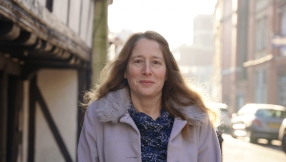Catholics, Protestants Map Out Ethical Conversion Code
The joint Vatican-World Council of Churches (WCC) consultation convened some 30 Catholic, Orthodox, Protestant, Pentecostal and evangelical theologians and church representatives in Toulouse, France, this past week for the high-level meeting entitled "Towards An Ethical Approach to Conversion: Christian Witness in a Multi-Religious World".
It was the first time evangelicals and Pentecostals were represented at the consultation since the first meeting was held last year.
"'Evangelical' and 'ecumenical' Christians have never been as close in this regard as they are today," said Thomas Schirrmacher of the World Evangelical Alliance, according to Ecumenical News International on Monday.
"It would be the first time ever that such a broad Christian backing is given to an agreement of this kind."
Schirrmacher, who was a speaker at the August 8-12 consultation, is a German theologian who chairs the WEA's International Institute for Religious Freedom. He represented himself as an evangelical individual rather than the WEA's representative during the consultation.
The German theologian noted, however, that it would be difficult to concretely specify "unethical means" of conversion given differences in historical, religious, cultural and political contexts of Christian traditions, according to ENI.
Schirrmacher emphasised that all Christian traditions need to self-reflect based on the code of conduct rather than just direct it against evangelicals and Pentecostals who are known for their strong focus on evangelism.
"Conversion is a controversial issue not only in interreligous relations, but in intra-Christian relations as well," acknowledged the Rev Dr Hans Ucko, WCC programme executive for inter-religious dialogue and cooperation, in a statement.
Ucko gave as an example of religious tension that existing between the Roman Catholic Church and the Pentecostal movement in Latin America. He also noted that the Orthodox churches in other regions often feel "targeted" by Protestant missionary groups.
Fiorello Mascarenhas, a Jesuit from India and former chairperson of the International Catholic Charismatic Renewal Office Council, affirmed that evangelisation needs to avoid "stooping to belittle or condemn other religion".
Rather, evangelisation should promote "inter-religious dialogue and religious harmony, as well as wholehearted cooperation in human welfare projects".
"The fact that Protestants, Orthodox, Roman Catholics, Pentecostals and Evangelicals were able to meet and discuss such a complex issue is in itself a success," said WCC's Ucko.
Despite progress on drawing up the code of conduct, the formidable challenge of enforcing the code remains, seeing that the WEA, WCC, Pentecostals and others have no authority to force their members to adhere to the code. There is also speculation that the Catholic Church will not make the code an official policy.
The study project jointly undertaken by the Pontifical Council for Interreligious Dialogue and the WCC's programme on inter-religious dialogue and cooperation - "An Interreligious Reflection on Conversion: From Controversy to a Shared Code of Conduct" - was launched in May 2006 in Lariano/Velletri, near Rome.
It aims to produce a code of conduct on religious conversion commonly agreed among Christians by 2010. The first meeting was attended by representatives of the Buddhist, Hindu, Muslim, Jewish and Yoruba faiths along with Christians.













